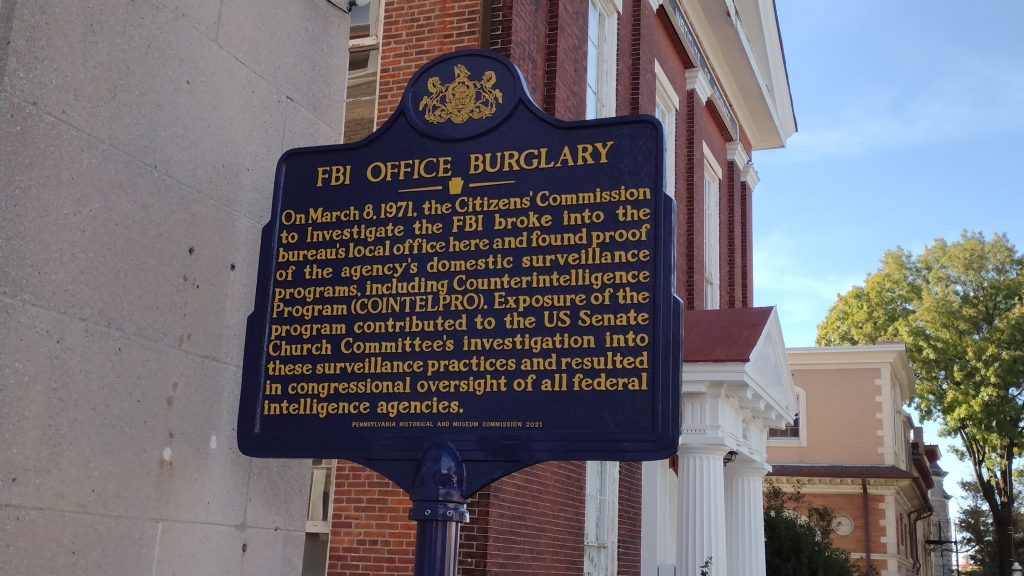Second judge finds “no-fly” orders may violate due process and right to travel
In another victory for due process and the right to travel, Judge Anthony J. Trenga of the US District Court for the Eastern District of Virginia in Alexandria, today rejected another government motion to dismiss a complaint challenging the US “no-fly” list. At least as long as Judge Alsup’s decision in Ibrahim v. DHS remains secret, today’s ruling in the case of Mohamed v. Holder contains the strongest and clearest affirmation of the right to travel in any judicial opinion in the US since 9/11, and clears the way for what would be only the second trial (despite many years of litigation) in a no-fly case.
Gulet Mohamed is a poster-child for everything that’s wrong with the system of “no-fly” orders, and one of dozens of victims of similar mistreatment and extrajudicial exile from the US. Raised in the US, and a US citizen, Mr. Mohamed was a teenager visiting family abroad in 2011 when he was placed on the US no-fly list, apparently in an effort to induce him to become an FBI informer on the Somali-American community. Unable to return home to the US, he was arrested and imprisoned in Kuwait for overstaying his visa. While being held incommunicado and blindfolded in Kuwait, he “was repeatedly beaten and tortured by his interrogators,” one of whom spoke “perfect American English.”
Eventually — either because Mr. Mohamed’s Kuwaiti captors decided he was telling the truth when he said he knew nothing about terrorists, or because he had smuggled out a message to his family in the US, who had gotten him a lawyer — they let him buy a plane ticket home, and tried to deport him. But the airline wouldn’t let him on the plane to the US, saying that they were acting on orders from the US government.
Mr. Mohamed was allowed to come home only after his lawyer in the US, Gadeir Abbas of the Council on American-Islamic Relations (CAIR), filed a federal lawsuit on his behalf.
Once Mr. Mohamed was home, of course, the US government tried to argue that the case was “moot”, notwithstanding the fact that Mr. Mohamed couldn’t tell whether he would ever again be allowed to fly.
After three years of technical arguments about standing, jurisdictions, and so forth were rejected by the trial judge and finally last year by the 4th Circuit Court of Appeals, the government made a new round of objections as to whether Mr. Mohamed’s compliant, even if true, stated a claim that would entitle him to any judicial relief.
That motion by the government was denied today. While Judge Trenga didn’t rule on the truth of the allegations in Mr. Mohamed’s complaint, the judge found that, if true, these allegations could provide a sufficient basis for findings of violations of Mr. Mohamed’s Constitutional rights.
Today’s ruling is worth reading in its entirety. Here are some excerpts:
The impact on a citizen who cannot use a commercial aircraft is profound. He is restricted in his practical ability to travel substantial distances within a short period of time, and the inability to fly to a significant extent defines the geographical area in which he may live his life. As a practical matter, an affected person is restricted in his ability to visit family and friends located in relatively distant areas of the country or abroad, which through flight can be reached within a matter of hours but would otherwise take days, if not weeks, to access. See Latifv. Holder, No. 3:10-cv-750,2013 WL 4592515, at ¶8 (D. Or. Aug. 28, 2013) (noting that flight is often the only feasible form of international travel); Ibrahim v. Dep ‘t of Homeland Sec, No. C 06-00545 WHA, 2012 WL 6652362, at ¶7 (N.D. Cal. Dec. 20, 2012) (same). An inability to travel by air also restricts one’s ability to associate more generally, and effectively limits educational, employment and professional opportunities. It is difficult to think of many job categories of any substance where an inability to fly would not affect the prospects for employment or advancement; one need only reflect on how an employer would view the desirability of an employee who could not travel by air. An inability to fly likewise affects the possibility of recreational and religious travel, given the time periods usually available to people, particularly those who are employed.
Inclusion on the No Fly List also labels an American citizen a disloyal American who is capable of, and disposed toward committing, war crimes, and one can easily imagine the broad range of consequences that might be visited upon such a person if that stigmatizing designation were known by the general public. In effect, placement on the No Fly List is life defining and life restricting across a broad range of constitutionally protected activities and aspirations; and a No Fly List designation transforms a person into a second class citizen, or worse. The issue, then, is whether and under what circumstances the government should have the ability to impose such a disability on an American citizen, who should make any such decision, according to what process, and by what standard of proof.
After a review of the legal history of the right to travel and its importance, Judge Trenga turns to the Constitutional aspects of the specific right to travel by air and the functioning of the “no-fly” list:
[W]hen the basic principles discussed in Kent and Aptheker are applied to the No Fly List, substantial constitutional issues are immediately apparent.
First, the No Fly List, once distributed, clearly infringes upon a citizen’s right to travel; and the Court cannot conclude based on the present record that there are no means less restrictive than an unqualified flight ban to adequately assure flight security, such as comprehensive pre-flight screening and searches. Second, the current record is inadequate to explain why judicial involvement before a person is placed on the No Fly List is either unnecessary or impractical, other than perhaps within the context of an emergency based on a specific, imminent threat that requires immediate action. Nor does the record conclusively establish that there cannot be any opportunity, either before or after an American citizen is placed on the No Fly List, to know of or challenge any of the information used to list him, even where such information could be summarized in a way that does not compromise sources or methods.
We’ve always believed that no-fly orders should come from the courts, through existing routine legal procedures (which the DHS has never attempted to use) for the issuance of temporary restraining orders or permanent injunctions. So far as we know, however, this is the first time any judge has suggested the possibility of judicial no-fly orders rather than judicial review of extrajudicial administrative no-fly orders. And this also the first time, so far as we know, that any judge has questioned not just how a no-fly list should work, but whether such a total ban on travel (by people who the police do not have grounds to arrest) is necessary at all.
The ruling continues: Read More


